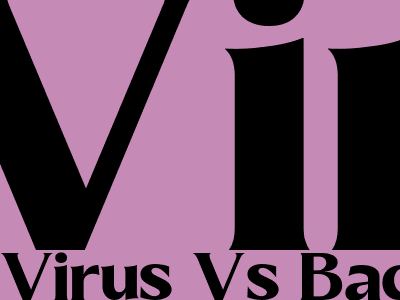Virus vs Bacteria: The Major Differences
What is the key distinction between viruses and bacteria?
Virus and bacteria cause many infections in the human body. However, there are important differences between the two types of microbes.
How viruses unlike bacteria
Bacteria are single-celled organisms that can life independently. They have their ribosomes, DNA, and a cell membrane. Viruses, on the other hand, are not cells. They are made up of genetic material surrounded by a protein coat.
Bacteria can reproduce on their own. They do by dividing in two. Viruses cannot reproduce on their own. They need to infect a living cell in order to reproduce.
Bacteria can cause a wide range of infections, including pneumonia, urinary tract infections, and skin infections. Viruses can also cause a wide range of infections, including the common cold, flu, and AIDS.
How viruses and bacteria are similar
Despite the differences, viruses and bacteria share a few similarities. Both can cause illness in humans. Both can be spread through contact with an infected person or animal. And both can be prevented by practicing good hygiene.
How to protect yourself from viruses and bacteria
There is no specific cure for a virus, though some antiviral medications are available for treating viral infections. Bacterial infections can be treated with antibiotics. To protect yourself from viruses and bacteria, practice these tips as well.
- Wash your hands thoroughly and frequently with soap and water.
- Avoid touching your face, especially your eyes, nose, and mouth.
- Keep surfaces clean and disinfected.
- Get vaccinated against common viruses and bacteria.

تعليقات